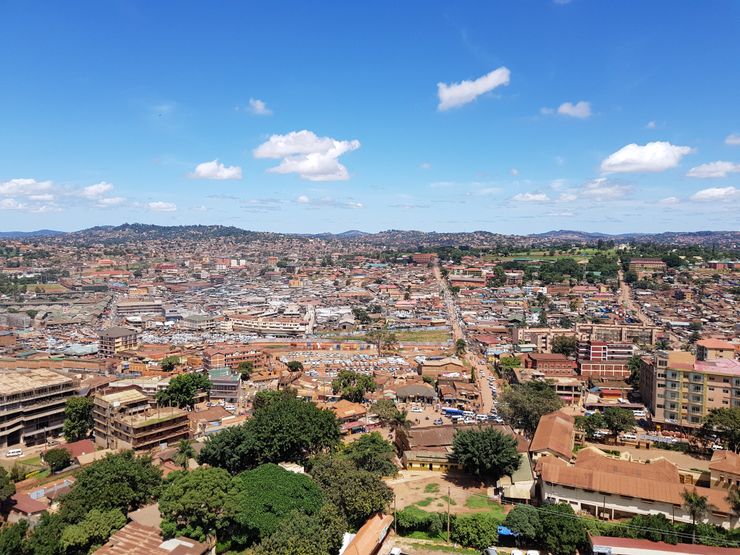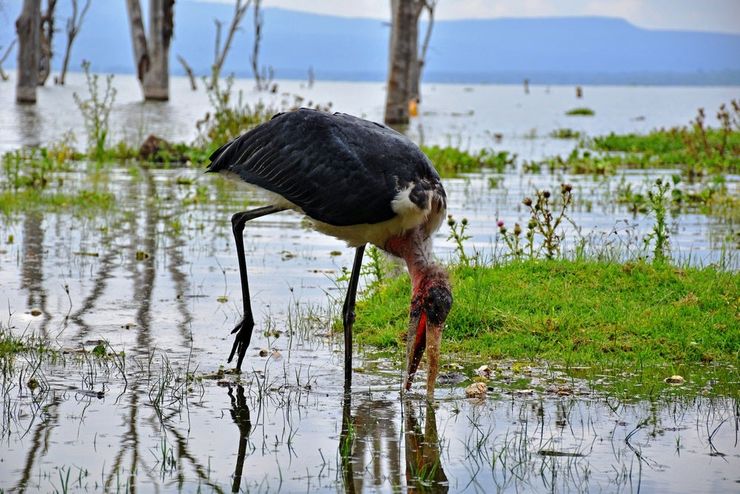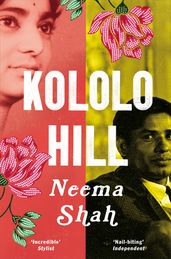Neema Shah on the inspiration behind her novel, Kololo Hill
The dark history of Uganda and bravery of her grandmother in starting a new life in East Africa inspired Neema Shah’s extraordinary novel Kololo Hill. Here, Neema tells us more.

Set during Idi Amin’s violent expulsion of Ugandan Asians from Uganda in 1972, Neema Shah's moving debut novel Kololo Hill tells the story of newlyweds Asha and Pran who must flee the country for the safety of Britain. Neema was fascinated by the stories her grandmother told of the new life she and her grandfather built in East Africa and later London, and it was this family history which inspired her to write Kololo Hill. Here she tells us more about the history behind Idi Amin’s devastating decree in 1972 and her family’s experiences in Kenya and Britain.
There’s a period of history that very few British people seem to know about, unless they recall the news reports from the early 1970s. In 1972, 80,000 Uganda Asians were expelled by brutal President Idi Amin, given only 90 days to leave with £50 each. They were forced to leave everything behind, say goodbye to lifelong friends and in some cases, see their families scattered across the world. Many who arrived as refugees in the UK had British passports, yet had never visited these shores before the expulsion.
I wanted to bring this history to life in my debut novel, Kololo Hill, as well as my own family background. Over the years, my grandmother had told me stories that inspired some of the scenes in my novel. Only a teenager at the time and with a baby of her own, during World War Two she had travelled on a steamer from Gujarat to Kenya to be reunited with my grandfather. They built a home and a life together in a country they’d never before set foot in. Decades later, my parents arrived in England clutching their British passports, while other members of my extended family were among the expelled Ugandan Asians.

I’d often wondered, even as a child, what it would be like to leave everything you know and love behind, to start again. When children at school told me to ‘go back to my own country,’ I spent a lot of time wondering where my ‘own country’ was? I thought about what my family would do, where they'd go? Decades later, I finally had a chance to explore these questions through the prism of recently married Asha, her Ugandan Asian family and their houseboy December.

Why were Asians in Africa in the first place? As with much of colonial history, the story begins with the British Empire. With the abolition of slavery, the British needed to find manpower – and indeed, womanpower – to maintain their economic interests in their colonies. From the nineteenth century to the end of World War One, Britain transported over one million Indian indentured servants to countries across the world, Uganda, Kenya and Tanzania among them. These ‘indentured’ servants were contracted, often for a period of five or so years, to build the Kenya-Uganda railway and were overseen by their British employers. The colonialists believed that Indian workers were more reliable than their African counterparts and the Asians, therefore, benefited from marginally better treatment. Their employers usually paid a wage, food and lodgings. Sounds reasonable? Unfortunately, salaries were often low, conditions poor and of the circa 32,000 Indian indentured servants that went to East Africa at that time, over 2,000 died as a result of maltreatment and disease, while some were even the victims of man-eating lions.
Most of the surviving workers eventually returned to India, but a few remained in East Africa. In the decades that followed, more Indians arrived as ‘free-emigrants’, smelling an opportunity to leave behind difficult economic circumstances in India and a chance to make better lives. Though many East African Asians settled and integrated well, there were also challenges. When the British gave Independence to their colonies (Uganda in 1962), they left behind their ‘divide and rule’ culture and ethnic Africans were left with little in terms of material wealth, leading to understandable resentment. This complex situation ultimately culminated in Idi Amin’s expulsion of the Ugandan Asians, as well as new and restrictive laws for ‘dukanwallas’ – the Indian business owners – in Kenya and Tanzania.
Although I’ve worked hard to bring the complex and emotional experiences of the expulsion to life, I didn’t want Kololo Hill to be a novel full of doom and gloom. East African Asians developed their own unique culture and I was equally keen to explore this in my story. For example, my own family’s Gujarati cuisine is infused with Kenyan-Indian dishes such as coconut cassava, where the root vegetable is stewed in a coconut milk and cumin sauce. The Gujarati language we speak is also woven through with Swahili words – ndizi (banana) and sufaria (saucepans), for example. In fact, for the first few years of my life, I thought these words were also Gujarati.

It is East Africa, rather than India, that my family consider our second home. My mum didn’t even visit India for the first time until she was in her forties. We spent summer holidays in Kenya, eating roasted corn spiced with chilli and lime juice, enjoying freshly fried cassava crisps at the Lighthouse in Mombasa or watching lions lazing in the sun in the Masai Mara. More recently, I visited Uganda for the first time on a research trip. Setting foot on the vivid red soil of the ‘Pearl of Africa’ felt, once again, like coming home.
Kololo Hill
by Neema Shah
Neema Shah’s impressive debut novel is set amidst the turmoil of the expulsion of Ugandan Asians by Idi Amin. When a devastating decree is announced which says all Ugandan Asians must leave the country in ninety days, Asha and Pran and Pran’s mother Jaya, must leave everything they’ve ever known for a new life in Britain. But as they try to rebuild their lives, a terrible secret hangs over them.
Photo credit: ©Alexander James



